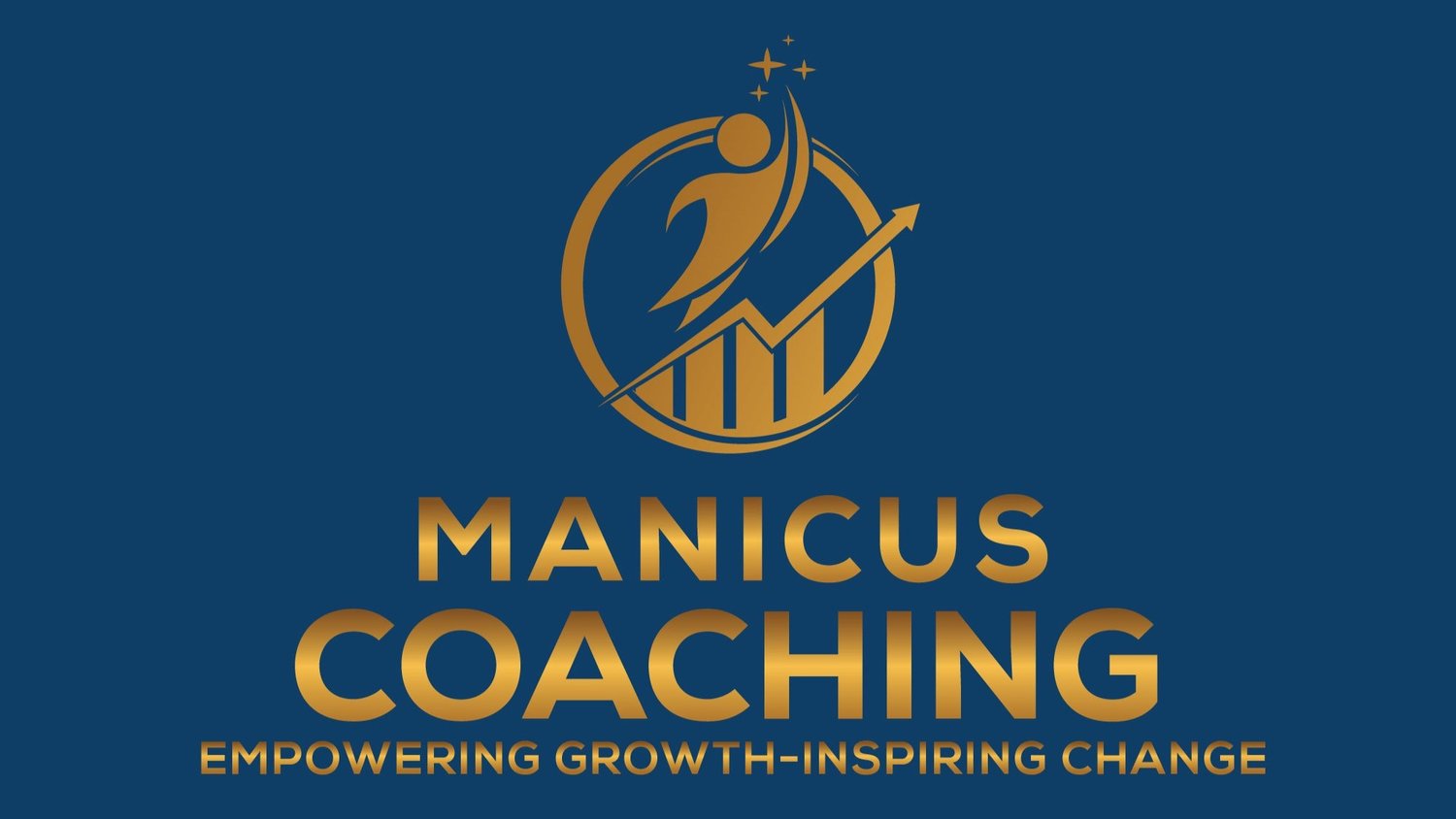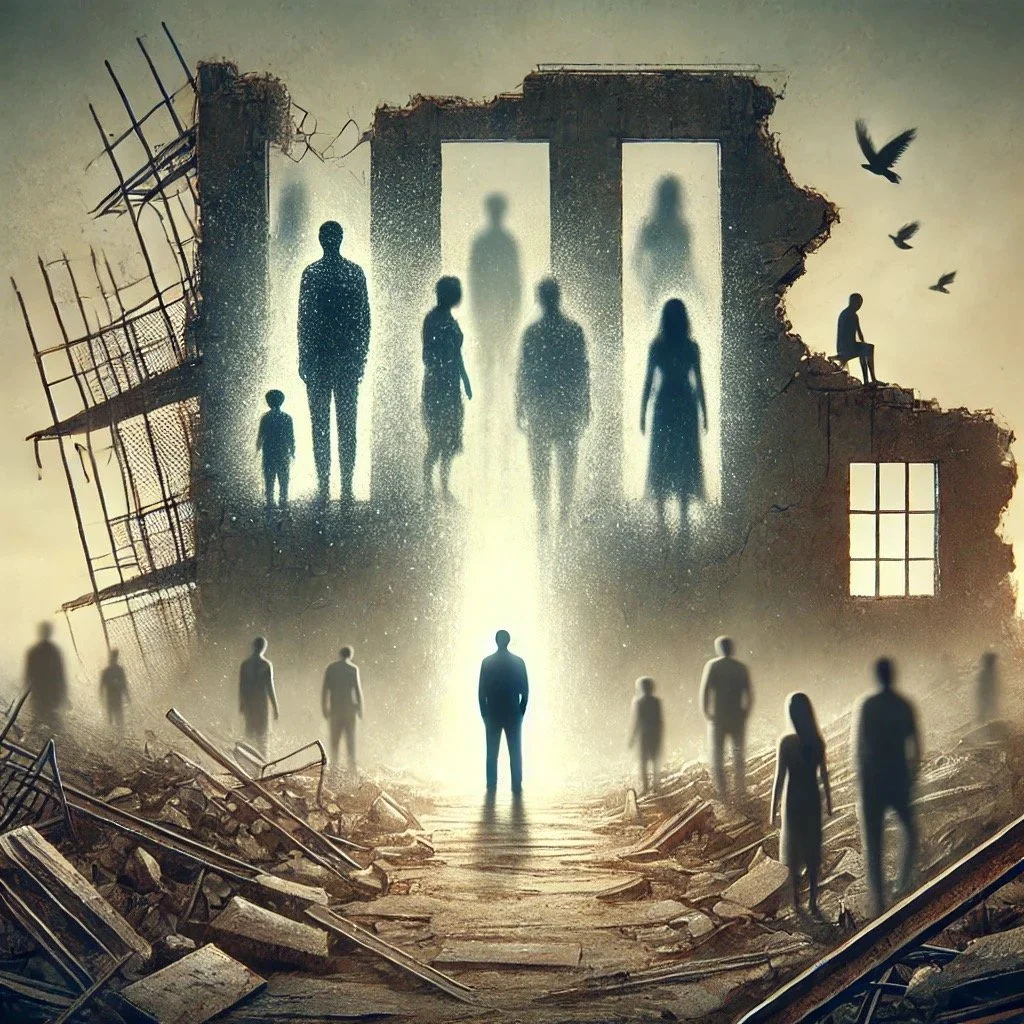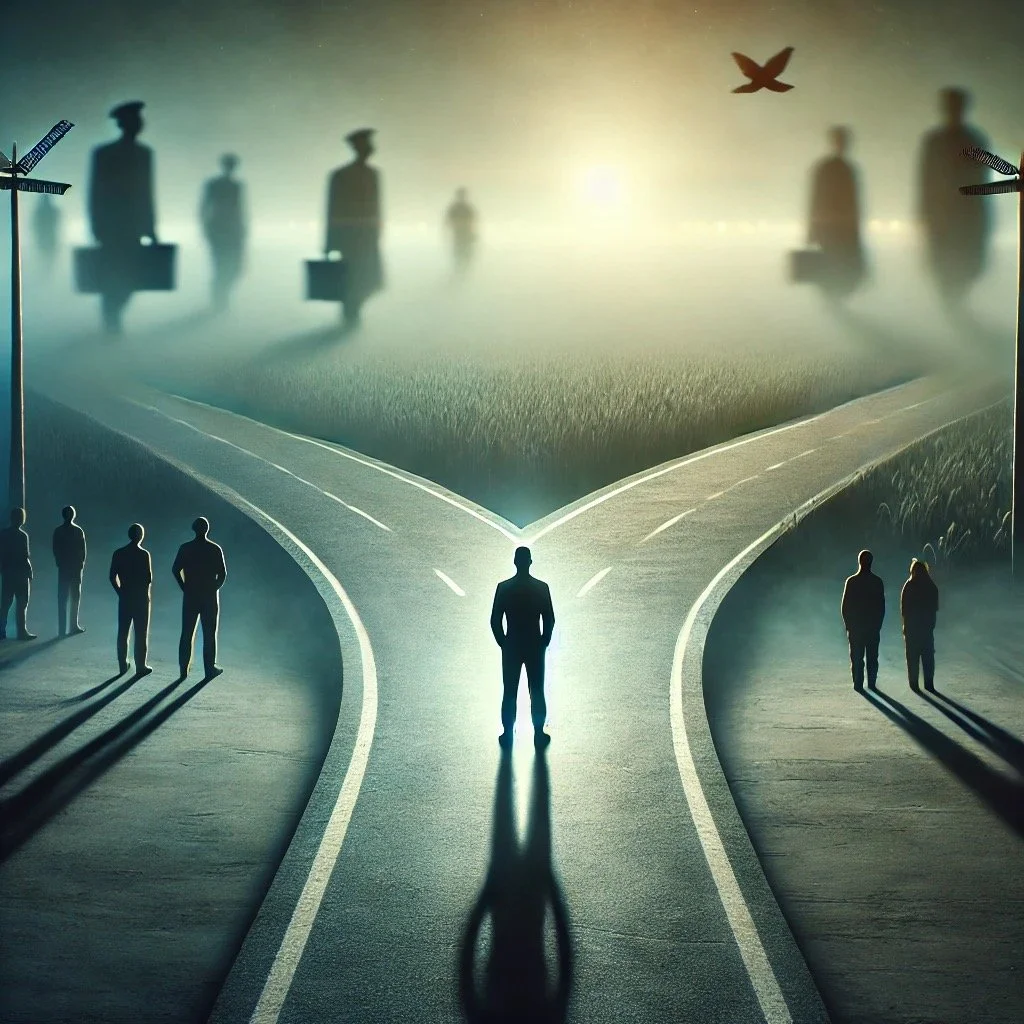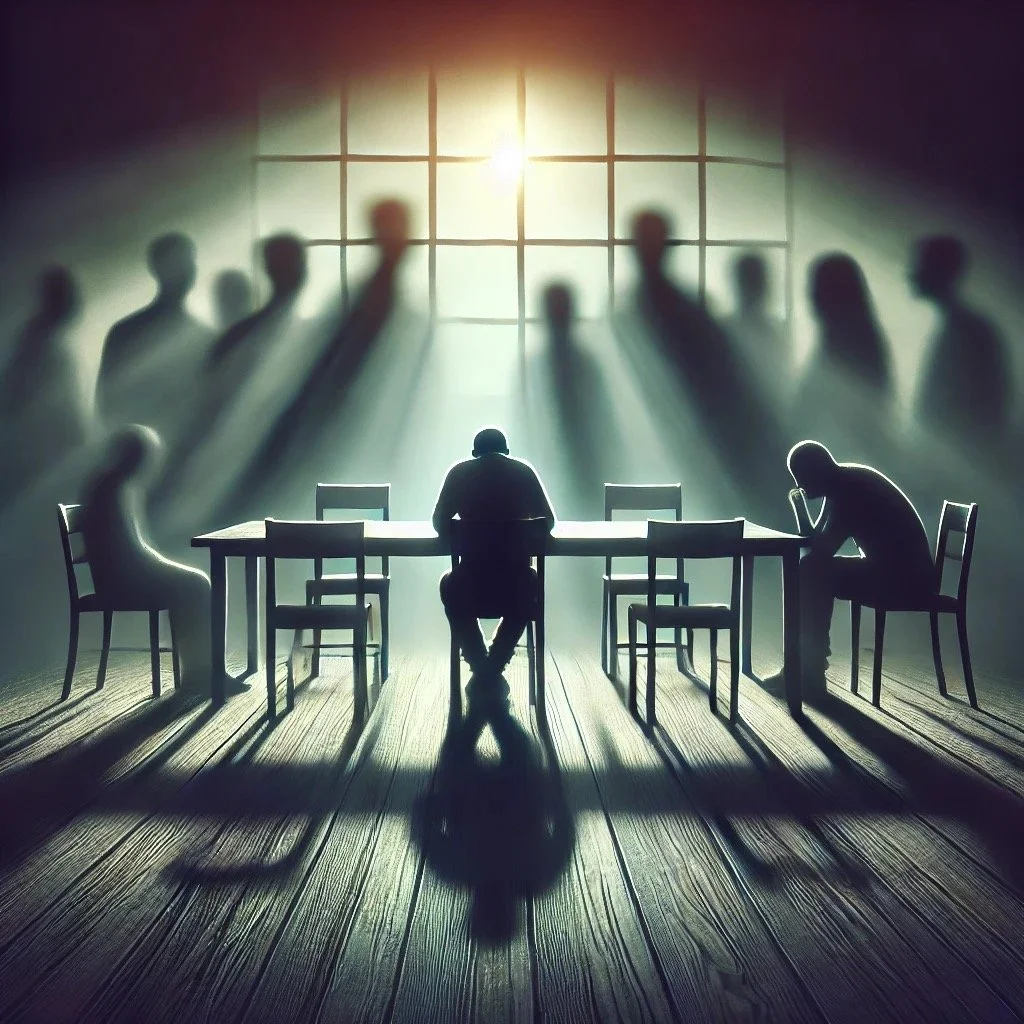Pain to purpose - part 5
Navigating the Loss of Identity and Social Support
Life transitions bring unexpected challenges, but some cut deeper than others—especially those that shake the very foundation of our identity and leave us standing alone in unfamiliar territory. My transition from military to civilian life was one such moment, stripping away the structure that had defined me. Years later, hyperacusis would bring another seismic shift—not just in how I functioned, but in how others saw and treated me.
Losing structure and losing social support forced me to rebuild from the ground up. Though painful, these experiences shaped my resilience in ways I never imagined.
Losing the Structure That Defined Me
The military gave me a sense of belonging, purpose, and identity. It was a world of clear expectations, camaraderie, and discipline. When I left, I thought I had a plan: flight school, a career in aviation, a new mission. But the reality was harsher. I had stepped into a world that didn’t operate by the same principles I had lived by for years. The certainty I once had was gone, and I felt like a ship without a rudder, adrift in unknown waters.
Then came an even greater shock. During this transition, I uncovered repressed memories of the childhood abuse I had suffered. It was as if I had been carrying a weight my entire life without knowing it, and suddenly, I could feel its full impact. The people around me—family, friends, even professionals I sought for help—often didn’t know how to react. Some distanced themselves, while others cast doubt or made accusations. The structured world of the military had taught me how to face external threats, but now I was battling an internal one, alone.
When the Social Network Crumbles
Years later,
hyperacusis brought a different kind of loss. The physical pain was difficult, but the emotional pain of isolation was worse. Friends stopped inviting me to gatherings, assuming it was better not to include me than to risk my discomfort. Some said they would still come around, that they would be the ones to just sit and have wine with me. But five years later, their promises remained empty.
Family members who had once been close told me they thought it was too painful for them to see me in this state—so they chose not to see me at all. At first, I accepted their reasoning. Maybe it was for the best. But the silence became deafening.
The more people withdrew, the more invisible I felt.
My condition didn’t just rob me of my ability to tolerate noise—it made me a reminder of suffering, something people preferred to avoid rather than understand. I saw it in their eyes: the discomfort, the helplessness, the wish that I could somehow go back to the way I used to be so they wouldn’t have to feel uneasy.
The most painful part? This distancing happened at every level. Acquaintances faded away without a word. Friends apologized but still withdrew. Even in my closest relationships, including my marriage, there was a shift. The unspoken weight of my condition pressed down on everything, and no matter how much love remained, the dynamic was forever changed.
Building Resilience When Everything Changes
Losing structure and losing social support, though different in cause, required the same kind of resilience. Both experiences forced me to redefine myself, create meaning from pain, and adapt to a reality I never chose - Here’s what I’ve learned:
Identity is More Than a Role
When the military uniform came off, I thought I had lost my bearings. When the cloud of dissociation lifted and revealed my PTSD, I thought I had lost my foundation. When hyperacusis took away my social life, I thought I had lost my sense of belonging. But obstacles are meant to be climbed—one step at a time. And as I climbed, I discovered my true identity was not tied to a single role but to my ability to adapt and rebuild.
Pain Filters People
I believe in being a pillar of creation—a source of strength, inspiration, and resilience for those around me. Just as I strive to uplift others, I seek relationships built on mutual support and shared growth.
Life has a way of revealing who truly belongs in our journey. The ones who stay when things get hard are the ones worth holding onto. Letting go of those who can’t handle your reality may be painful, but sometimes, it is necessary. Instead of mourning those who left, I choose to focus on those who stand beside me, willing to meet me where I am, just as I do for them.
As Carl Sagan once said, “Who are we, if not measured by our impact on others?”
Extreme Ownership in the Face of Adversity
From the military to flight school and beyond, I’ve learned that true leadership starts with taking full responsibility. No matter the circumstances, I am accountable for my actions, my growth, and my future. Waiting for someone else to chart the path forward is not an option—ownership is. Challenges will come, but how I respond to them is what defines the outcome.
Adapting How I Connect
Life changes, and so do the ways we connect with others. Just as I had to adapt from military to civilian life, I also had to rethink how I build and maintain relationships. I’ve learned that connection isn’t about the size of the crowd but the depth of the conversation. Smaller gatherings, meaningful one-on-one moments, and even online spaces have become ways to stay close without the overwhelm. True connection isn’t about how often you see someone—it’s about how deeply you understand each other.
Purpose is a Lifeline
Coaching became my way forward. It gave me a reason to wake up in the morning, a way to turn my experiences into something meaningful. Pain can feel meaningless, but when I use it to help someone else navigate their own challenges, it takes on a new form.
From Pain to Purpose
Losing structure, navigating C-PTSD, and losing social support are some of the hardest experiences a person can face. They strip away what once made us feel secure, leaving us exposed, vulnerable, and alone. But I have learned that even in the darkest moments, there is a way forward.
Resilience isn’t about pretending the loss doesn’t hurt. It’s about acknowledging it, mourning it, and then deciding—every day—to rebuild. My journey has not been easy, but through coaching, taking ownership, and learning to embrace change, I have found my way back.
For those going through something similar—whether losing a career identity, a support system, or both—know this:
You are not lost forever. There is a way forward. And in time, you will find it.




